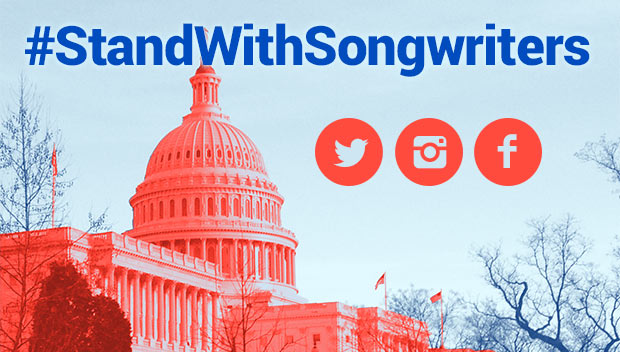
07 May 10 Important Challenges ASCAP Is Addressing In DC For Songwriters!
A few weeks ago I published a video on supporting the Songwriter Equity Act and today, our fellow ASCAP songwriters headed to Congress to emphasize the serious challenges that confront today’s music creators, and to offer some guidance on how to solve them.
Here are 10 essential points that your fellow ASCAP songwriter, composer and music publisher members will address:
- ASCAP operates as a not-for-profit. We ensure that more than 500,000 music creators across the country are fairly compensated for use of their copyrighted music, while making it easy for businesses to license and perform millions of musical works. In short, ASCAP members make their living writing music, and ASCAP makes that possible.
- ASCAP’s collective licensing model is good for songwriters, licensees and consumers, and has proven to be the most robust, flexible and effective way to ensure that all stakeholders benefit.
- However, while technology is creating amazing opportunities for music to reach new audiences, it’s also creating real challenges for songwriters and composers, who don’t have the same revenue streams as performing artists. That’s because the regulatory system that governs how we operate hasn’t kept pace. In fact, ASCAP’s original 1941 consent decree hasn’t been updated since 2001, before the iPod was introduced.
- Currently, under these antiquated decrees, ASCAP (and BMI) must grant a license to anyone who asks. If we can’t agree on a price for a license, either ASCAP or the licensee can initiate a rate court proceeding. A single federal judge decides the rate, and the burden is on ASCAP to prove that our proposed rates are reasonable.
- No other industry (not TV, not film) works this way! These outdated government regulations prevent the music industry from operating according to free market principles. This system increasingly disadvantages songwriters in the marketplace by treating us differently than other copyright owners.
- Songwriters and composers can’t earn a fair market royalty rate when our music is downloaded or streamed online. That’s because of two outdated provisions in the US Copyright Act – Sections 114(i) and 115 – that were written long before internet music services like Spotify, Pandora, iTunes and Napster ever existed.
- Online streaming services currently pay 12 to 14 times more in performance royalties to the artists and master owners of a sound recording than they pay to the songwriters and publishers of the underlying composition.
- It is time to update the system that regulates how songwriters and composers license their works in the digital age – especially the antiquated rate court process – to make sure the next generation of songwriters is paid fairly, regardless of how listeners enjoy their music.
- ASCAP is working with other music industry stakeholders to build a consensus around music licensing policies that will better serve everyone – music creators, music licensees and music listeners. But we need the help of our nation’s lawmakers in shaping a regulatory system that reflects the realities of today’s marketplace. And they need to hear your voice.
- Congress can take a small step toward rectifying this injustice by passing the bipartisan Songwriter Equity Act [click here to get the facts about it]. The bill would amend Section 114(i) and ensure our rate court considers all relevant market benchmarks, including sound recording royalties, for establishing performance royalties.
Lawmakers in Washington need to hear your voice. Tell them it’s time to update our music licensing regulations to reflect the reality of today’s music marketplace. Ask your members of Congress to “Stand with Songwriters” by supporting the Songwriter Equity Act and other reasonable music licensing reforms.
Click here to WRITE TO CONGRESS!
It only takes a 3 minutes to read and sign both letters!
